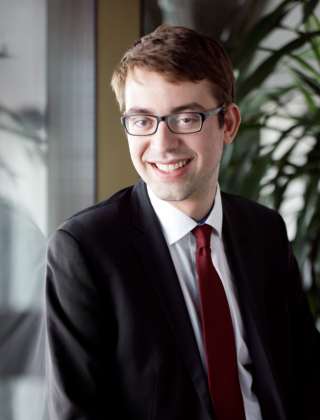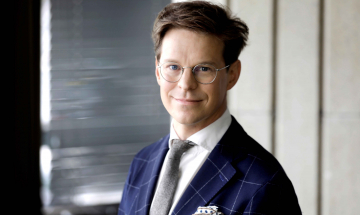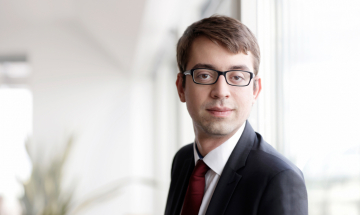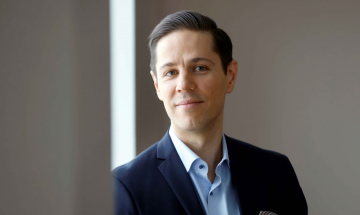
Looking Back at the EU in 2022: The Long Farewell to the “End of History”
Great expectations were attached to 2022 at its beginning within the European Union: as the world carefully but stealthily emerged from the worst global pandemic in recent memory, there were major hopes that this would be a year of normalcy where people could embrace stability and sociability again. Hopes that the recovery from the COVID-19 economic shock would begin.
Among the professionals in the so-called “Brussels Bubble,” there was a palpable sense of excitement that business as usual could resume – extended and spontaneous in-person meetings, large-scale networking events, and regular travel would be back on the agenda, enabling the Union officials to properly accomplish their ambitious goals in the run-up to the European elections of 2024. Briefly, an atmosphere of cautious optimism pervaded the streets of the European quarter.
All these hopes were nixed on 24 February, when Russian ruler Vladimir Putin launched a devastating invasion of Ukraine, wreaking misery and terror on innocent Ukrainians. It became clear that the world would not gain its desired period of respite but seamlessly transition from one crisis to the next. Beyond the immediate humanitarian catastrophe in Ukraine, Putin’s imperialist war of conquest has also had a number of collateral effects which have had particularly heavy implications for the European continent.
Overnight, EU countries became host to thousands of Ukrainian refugees; already high energy prices skyrocketed further as Russia instrumentalised its position as a leading supplier of natural gas and oil; and the security architecture that kept Europe largely stable and at peace since the end of the Cold War was no more.
The initial shock of the invasion forged an unprecedented unity among the twenty-seven EU Member States – and refuted many of the myths that EU decision-making was overly cumbersome and complex. As EU leaders agreed to sweeping sanctions against Russia and Belarus at record speed, it became clear that what had long been decried as a failure of process and law was, in fact, a failure of political will. This is a significant lesson for the bloc in the years to come: national governments will find it much more difficult to justify delays and dithering on key political intiatives after February and March 2022.
“The world has now seen that if the EU wants to take bold and swift action, it can.”
The aftermath of the Russian aggression against Ukraine has, however, also shown the difficulties of accepting the new reality that Vladimir Putin has created in Europe – both at political and societal level: though condemnations and protests came quick and boldly from all corners of the EU, not everyone realised that 24 February marked a watershed in European history whose consequences will mark the continent for the foreseeable future.
Ironically, this included the country whose Chancellor had himself proclaimed that Russia’s war had inaugurated such a “turning point” (Zeitenwende) – in defiance of Olaf Scholz’s words, a considerable number of German politicians and citizens thus continue to push for a “negotiated solution” to the war that they hope may allow the bloc to return to the status quo ante. They are not alone in this, as the utterances of many politicians across the EU have shown.
Not everyone has been as brazen in their refusal to accept that Putin’s actions pose a long-term security threat to democratic Europe as a whole as Hungary’s Viktor Orbán who has increasingly adopted an isolationist position on the conflict. However, it is clear that as the war drags on into 2023, the voices questioning the EU’s full-throated solidarity with Ukraine are only likely to grow – not least as the impact of increased energy prices on European prosperity continues to unfold. Beyond Ukraine, the unwillingness of many EU leaders to encourage an economic diversification away from an increasingly geopolitically bullish China underlines once again that not all the right lessons from Putin’s attack have been learned in Europe for now.
“Not all the right lessons from Putin’s attack have been learned in Europe for now.”
The disputes over the longer term approach to the war, Putin’s Russia, and Xi Jinping’s China highlight that the crisis of confidence among liberal democracies – especially but not just within the EU – persists: the prolonged farewell to the post-Cold War “end of history” mentality that began at the latest with Brexit and the election of Donald Trump as US President in 2016 has not yet concluded; many European politicians still struggle to abandon a mindset that established economic interest and interdependence as the key forces of global politics and accept that the first half of the 21st century looks set to be dominated by intellectual categories of ideology, control, and military force again. So long as this misreading of the world remains entrenched, however, the EU will not be able to formulate the solutions needed to stabilise its democracy from within and consolidate its status abroad.
The urgency of completing this intellectual paradigm shift has not least been shown by the scandal that will likely overshadow the EU’s work in much of 2023: the investigations into the possible corruption of former and present Members of the European Parliament by foreign states. While the work of the authorities proceed, the allegations have already cast an unflattering light on the questionable standards for engagement with third countries by EU politicians.
If the EU is serious about establishing itself as a geopolitical force, its politicians need to seriously alter not just the rules but their attitude in conducting external relations. To achieve this, the European institutions must avoid that this scandal further destabilises the EU. Already, partisan attacks among the parliamentary groups risk undermining the search for a new consensus on this question and, even more concerningly, the stability of the pro-EU parliamentary majority as a whole.
Going into 2023, the handling of this scandal by MEPs, the Commission leadership, and national leaders will thus be decisive in determining if the EU to make a leap forward in renewing its liberal democratic vision in the face of new global threats – or whether it will plunge into its next major crisis.
Further information:
Henrique Laitenberger, Head of EU Affairs, tel. +358 (0)40 353 1326, henrique.laitenberger@teknologiateollisuus.fi, Twitter: @ToEnLaiten
MORE ON THE SUBJECT:
2023: the Make or Break Year for von der Leyen?
Decision time postponed? The EU’s balancing act in times of war and energy crisis


